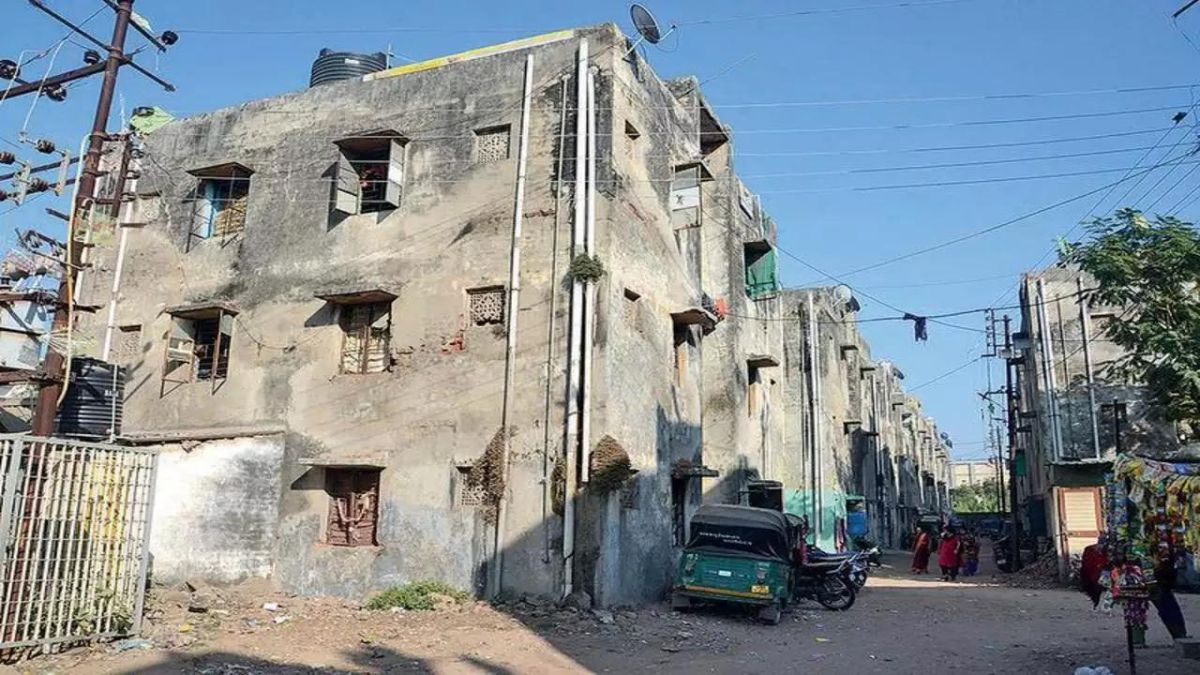Gujarat Housing Board Issues Notices for Dilapidated Houses, Redevelopment Pushed
The move follows a comprehensive survey conducted by the GHB, involving 25 teams of 75 members inspecting the city's 1011 colonies. Of these, 971 colonies, aged 30-50 years, were flagged for potential structural concerns. While the survey received positive responses from some residents, with over 75% in 32 colonies verbally agreeing to redevelopment, the response was less enthusiastic in others. 65-75% of residents in 9 colonies agreed, while less than 65% were on board in 88 colonies.

Advertisement
Ahmedabad : The Gujarat Housing Board (GHB) has launched a major initiative to address the city’s aging housing infrastructure, sending notices to about 30,000 residents of 127 dilapidated colonies and urging them to undertake repairs or redevelopment. Failure to comply could lead to forced demolition, raising concerns and sparking discussions among residents.
The move follows a comprehensive survey conducted by the GHB, involving 25 teams of 75 members inspecting the city’s 1011 colonies. Of these, 971 colonies, aged 30-50 years, were flagged for potential structural concerns. While the survey received positive responses from some residents, with over 75% in 32 colonies verbally agreeing to redevelopment, the response was less enthusiastic in others. 65-75% of residents in 9 colonies agreed, while less than 65% were on board in 88 colonies.
“Around 517 colonies across Gujarat were found in a dilapidated state due to lack of maintenance,” explains HV Jhadafiya, Chief Engineer of the GHB. He further highlights the alarming incidents of slab collapses in 361 of these sites, emphasizing the urgent need for action. “Following government orders, we conducted a door-to-door survey in these colonies. The positive response in some areas encourages us, but we understand concerns and are open to addressing them,” he added.
While the GHB’s initiative aims to improve safety and living conditions, residents facing potential displacement express worries. Concerns regarding affordability, compensation during redevelopment, and alternative housing arrangements are prevalent. Open communication, transparent processes, and financial assistance are crucial to ensuring a smooth and fair transition for those affected.
Advertisement

